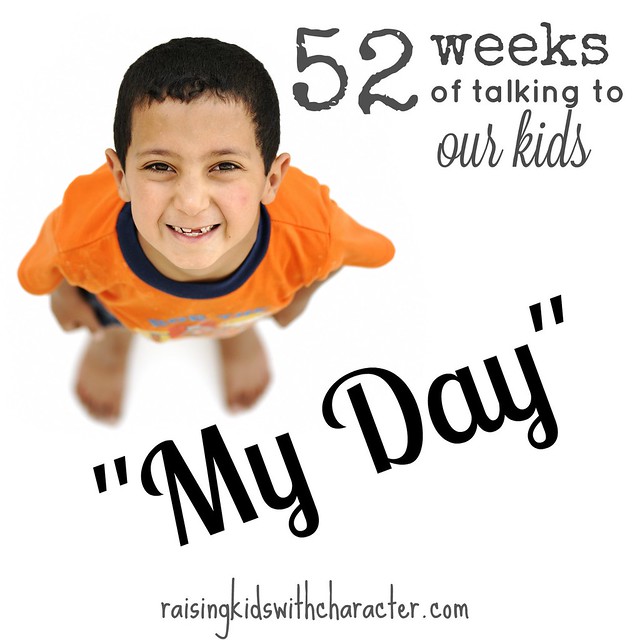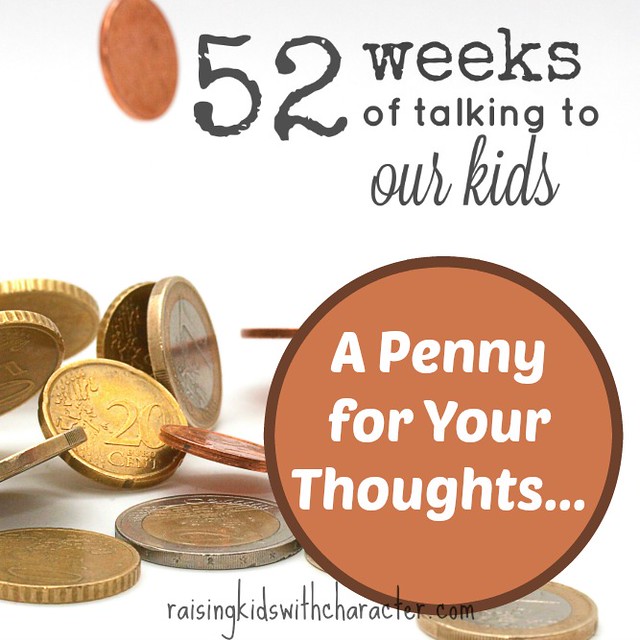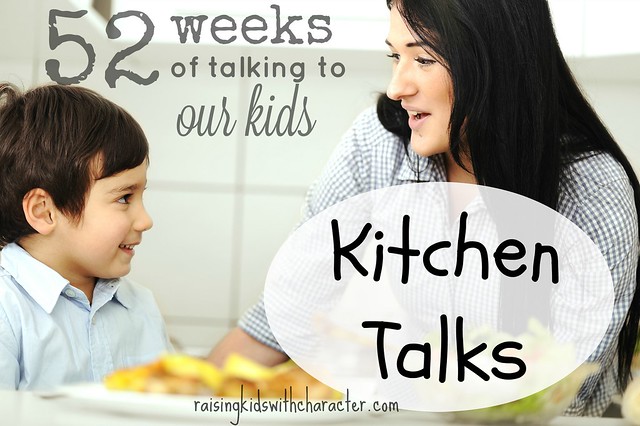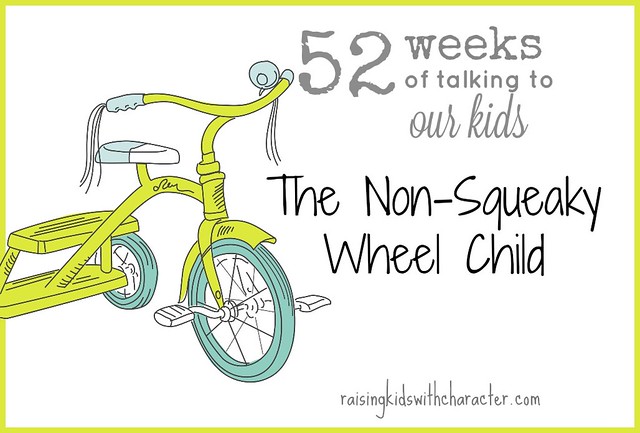by Donna | May 16, 2016

When is the best time to solve problems? Before they start!
The same thing is true in parenting. If we can talk through issues and problems before they arise, we will be ahead of the game in parenting.
My husband always used the mantra that we should “talk about this during non-conflict times.”
That is, we shouldn’t try to solve a bunch of problems, make new rules, talk through too many things, etc., when we were in the middle of a conflict.
(more…)
by Donna | May 9, 2016

When I had several young children, I assigned each child “a day” each week. I first got this idea when I was in teacher’s college, and it was suggested that we teachers pick a different student each day to focus on. It was recommended that we write that child’s name on the calendar for that day (to keep record of who got which day and to ensure that each child got a day) and that we try to praise, help, make more contact with, etc. that particular student on that day. This approach would keep the “non-sqeaky wheels” from getting overlooked.
(more…)
by Donna | May 5, 2016

“A penny for your thoughts; a nickel for a hug; and a dime if you tell me that you love me.”
We have talked at length on this blog about communicating with our kids. And how communication is a strong form of “teaching when…”
The ditty above is a little chant that we used to say to our kids to remind them that we want to talk to them, that they are valuable to us, that we love them “ten million times infinity and beyond.” From this saying, a valuable “object lesson” developed and tied my son’s and my heartstrings in a special way nearly twenty years ago.
(more…)
by Donna | May 2, 2016

With the addition of another child every other year or so, we knew it was important to spend time with the older children. (We were taught by our early mentors to put as much time and energy into our first two kids as we possibly could, knowing that the “trickle down effect” of teaching would come into play.)
Note: This is another reason we have felt so strongly about not letting an eight month old, eighteen month old, or twenty-eight month old determine the entire family’s schedule [i.e. have a “toddler run home”]—it never felt right to let a toddler’s “wants” override a teen’s needs. Anyway, because of the advice we received to invest significantly in our older kids for the “trickle down effect” (which majorly works, I might add), we always looked for ways to spend more time with Joshua (now 29) and Kayla (now 26). One of the ways I did this was to implement “Terrific Tuesday” or “Wonderful Wednesday.”
(more…)
by Donna | Apr 30, 2016

Not long ago my twenty-one year old son was helping me clean and cut fruits and veggies. This is a rare sight nowadays. The boys are either in college all the time or working very full time jobs (well, actually, they both do both at the same time!). I miss those times of cooking and cleaning in the kitchen with my kids.
However, I didn’t expect the boys to miss it! Josiah, the twenty-one year old pediatric nurse I just referred to, said, “You know what I miss? I miss those times that we used to gather around the table with tons of potatoes, carrots, apples, and other fruits and vegetables and peel, cut, clean, and prep them while you read aloud to us for hours!”
So do I, baby, so do I!
(more…)
by Donna | Apr 28, 2016

Our children are all different—even among each other. They have different strengths, talents, and skills—and they have different weaknesses.
And they have certain times and ages in which they are not very high need. And, of course, certain times and ages in which they are extremely high need.
Those are all expected. We wouldn’t want them to be all the same. And we wouldn’t want them to all be high need at the same time either!
What about that child who is not really high need very often? What about that one who cooperates most of the time (which means there aren’t a lot of one-on-one “training sessions”)?
(more…)









